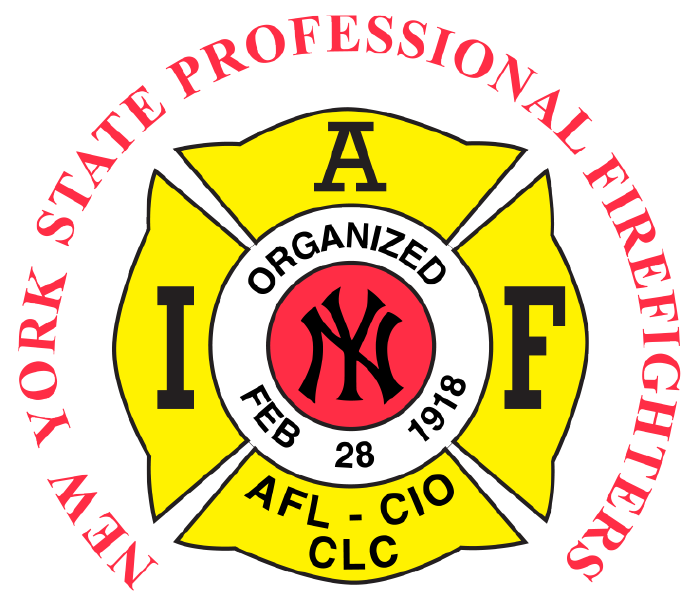New Pension Tier Contains Protections for New York State’s First Responders
The New York State Professional Fire Fighters Association (NYSPFFA) today announced that it has secured valuable pension benefits and protections for its membership while avoiding severe penalties contemplated under a newly crafted pension tier.
“Whether they are on the job today; or hired in the future, it simply would have been wrong to seek to penalize a fire fighter prepared to serve their community,” said NYSPFFA President Michael McManus. “When fire fighters report for their shift, they know that each call carries life threatening risk, however, when the alarm sounds they are prepared to go anywhere; anytime.”
The agreement, approved by the state legislature and expected to be signed by Governor Andrew Cuomo, follows aggressive advocacy by the NYSPFFA leaders to address a three unacceptable elements affecting its members that had been repeatedly highlighted in recent months, and were corner-stones of the massive advocacy rally at the Capitol earlier this week. As a result of NYSPFFA actions, the following issues were addressed:
- Optional participation in a defined contribution plan;
- Prohibitions of all overtime accruals from final average salary calculations; and
- Required contributions stemming from reductions in investment earnings.
The legislation, creating a new pension tier for state employees contains special conditions applicable to members of the New York State Police and Fire Retirement System.
Among the benefits that are preserved include:
- Full-vesting after 10 years of service;
- Pensions Benefit equal to 50 percent of final average salary after 20 years of service;
- Presumed occupational exposure for adverse health conditions such as heart and lung disease, various cancers, and other communicable diseases; and
“Today’s actions will ensure that fire fighters across New York State, and their families will continue to be protected. At the end of a 20 year career not only will they have earned the gratitude, respect, and appreciation of their neighbors, but an appropriate pension benefit too.”
